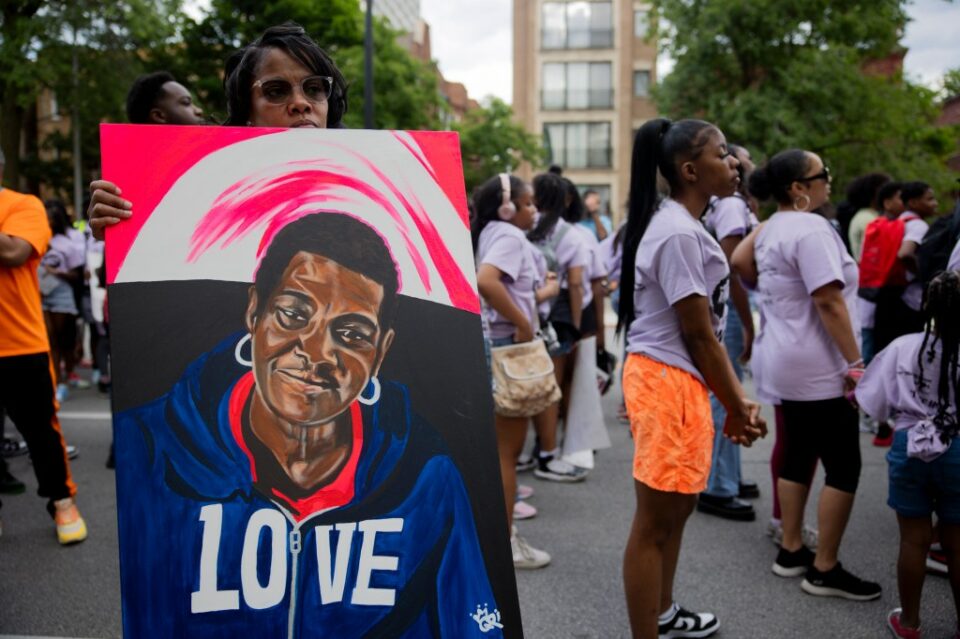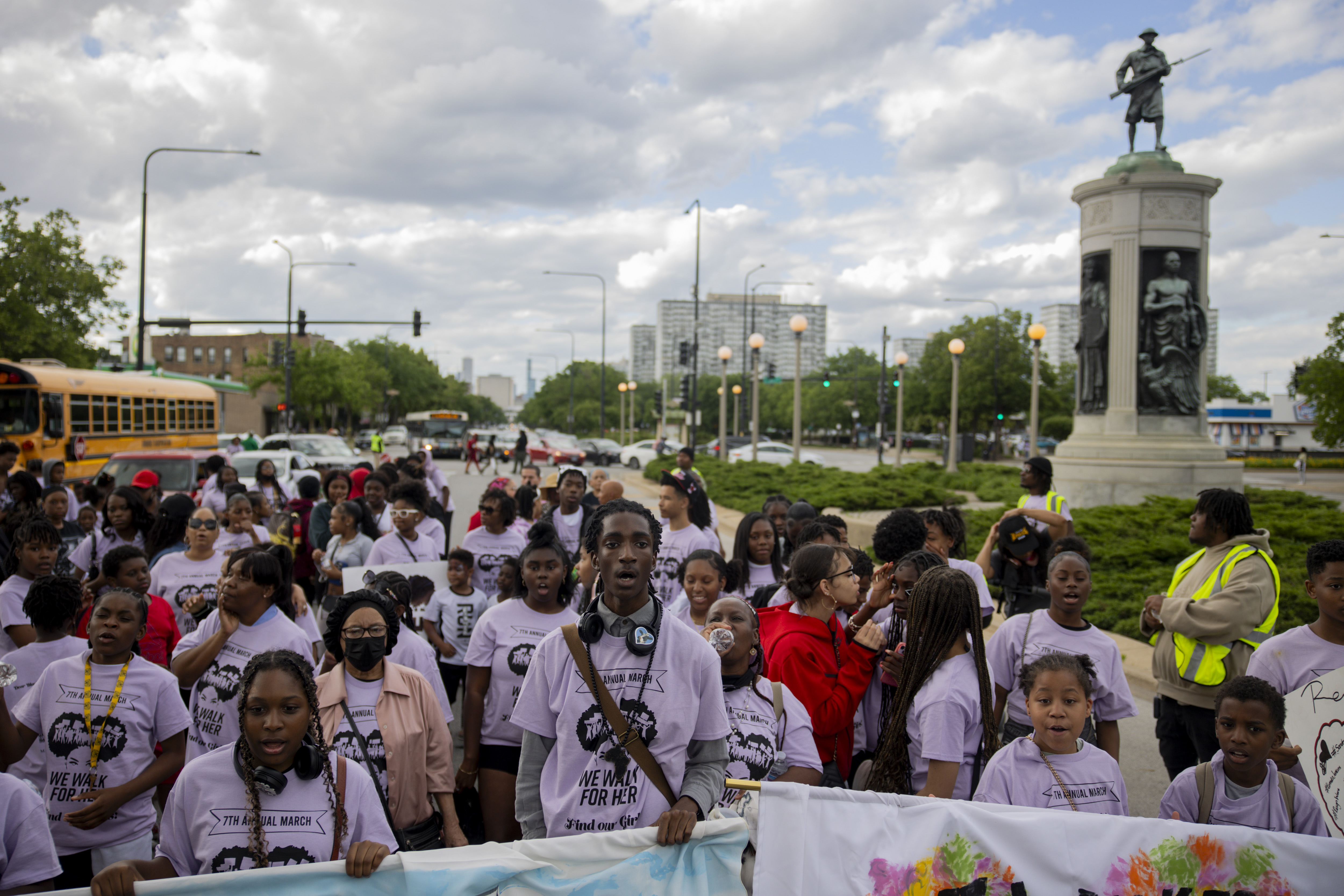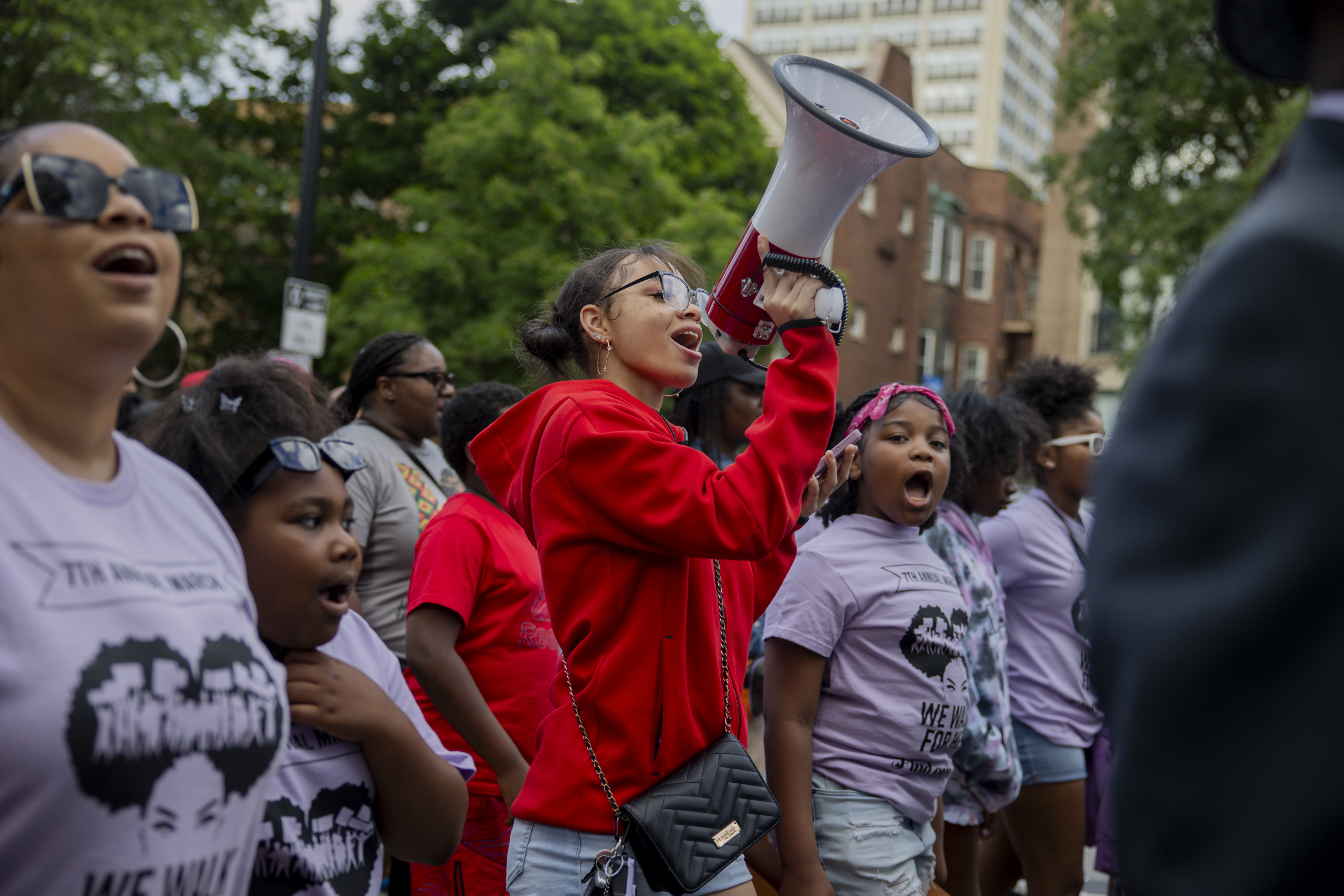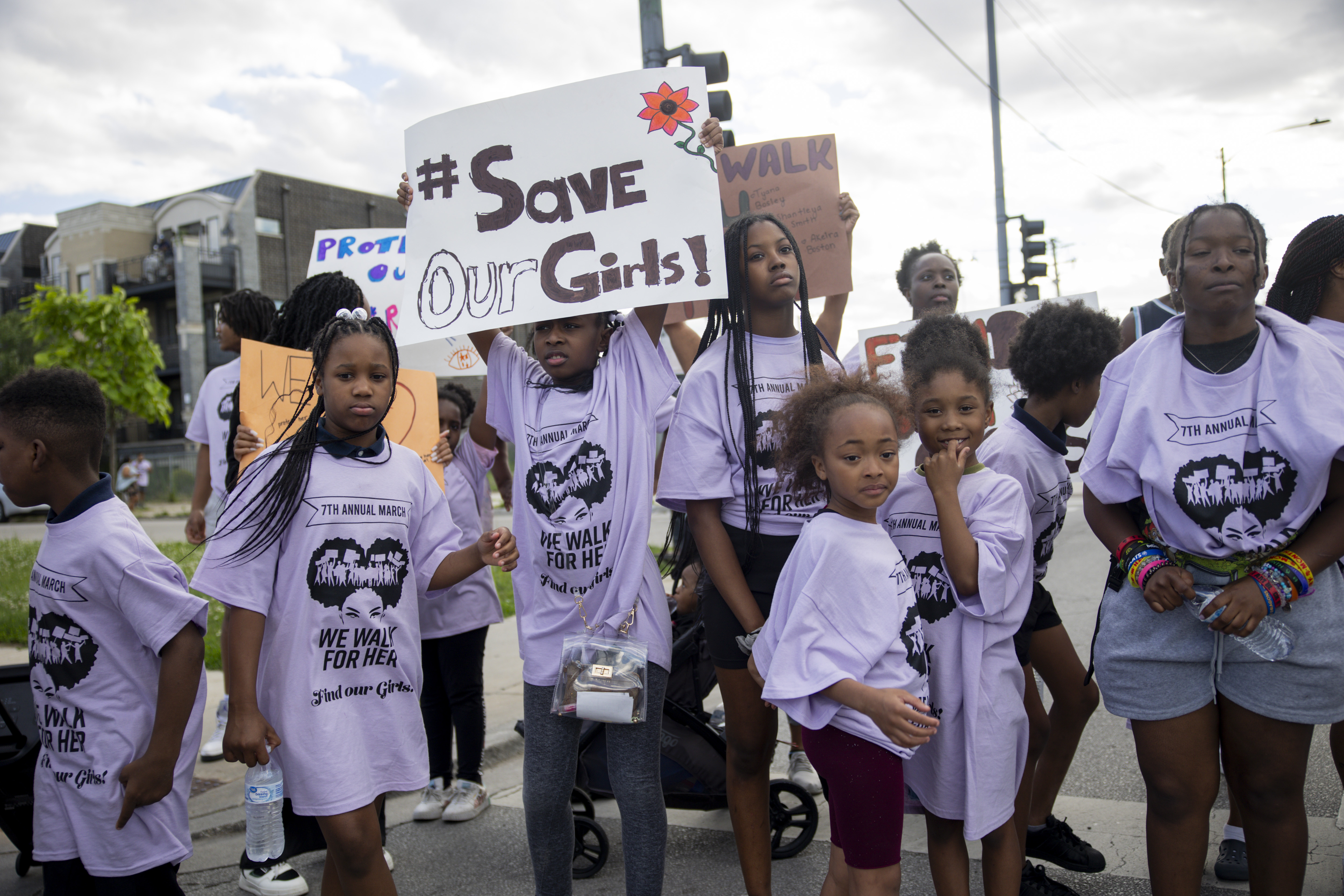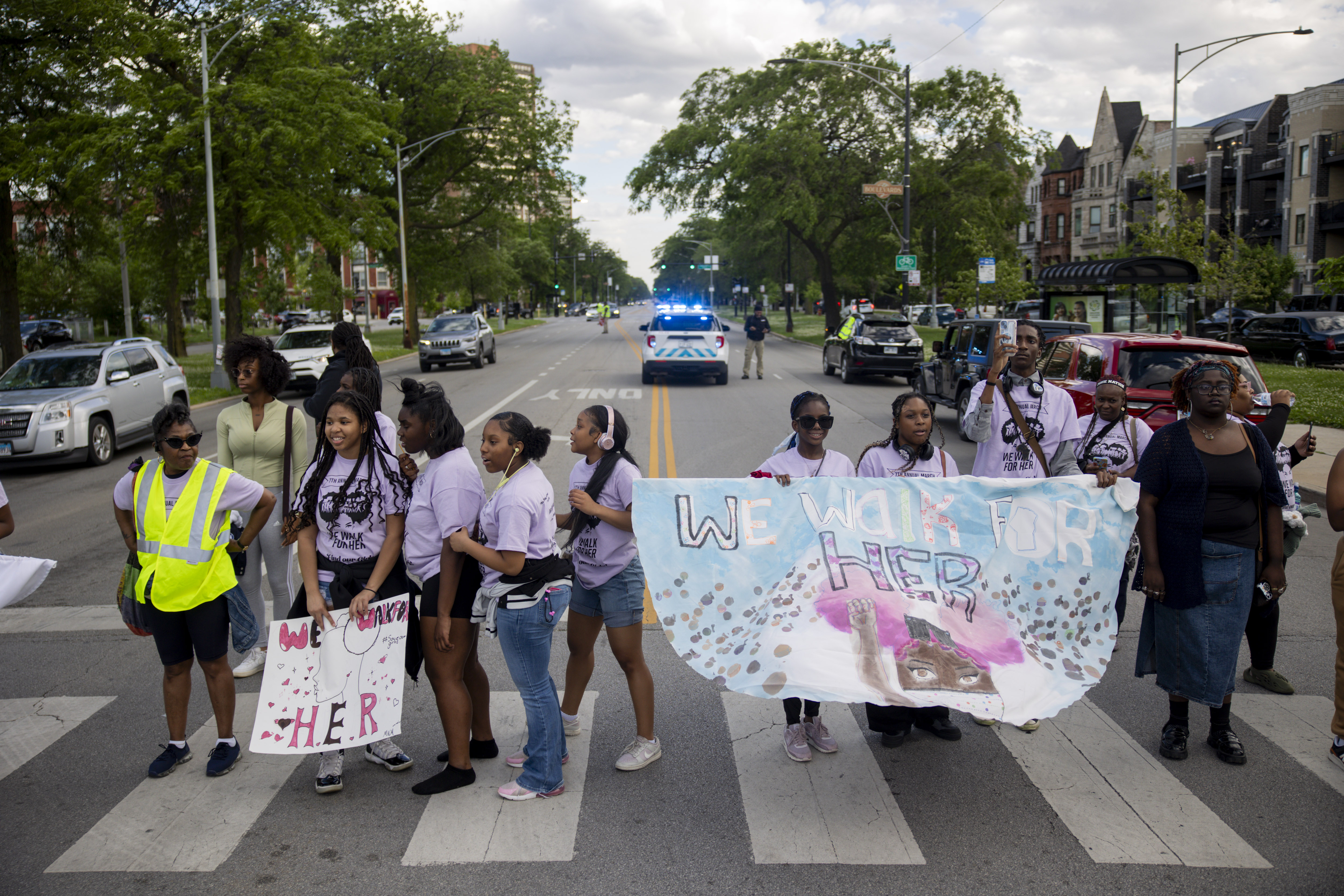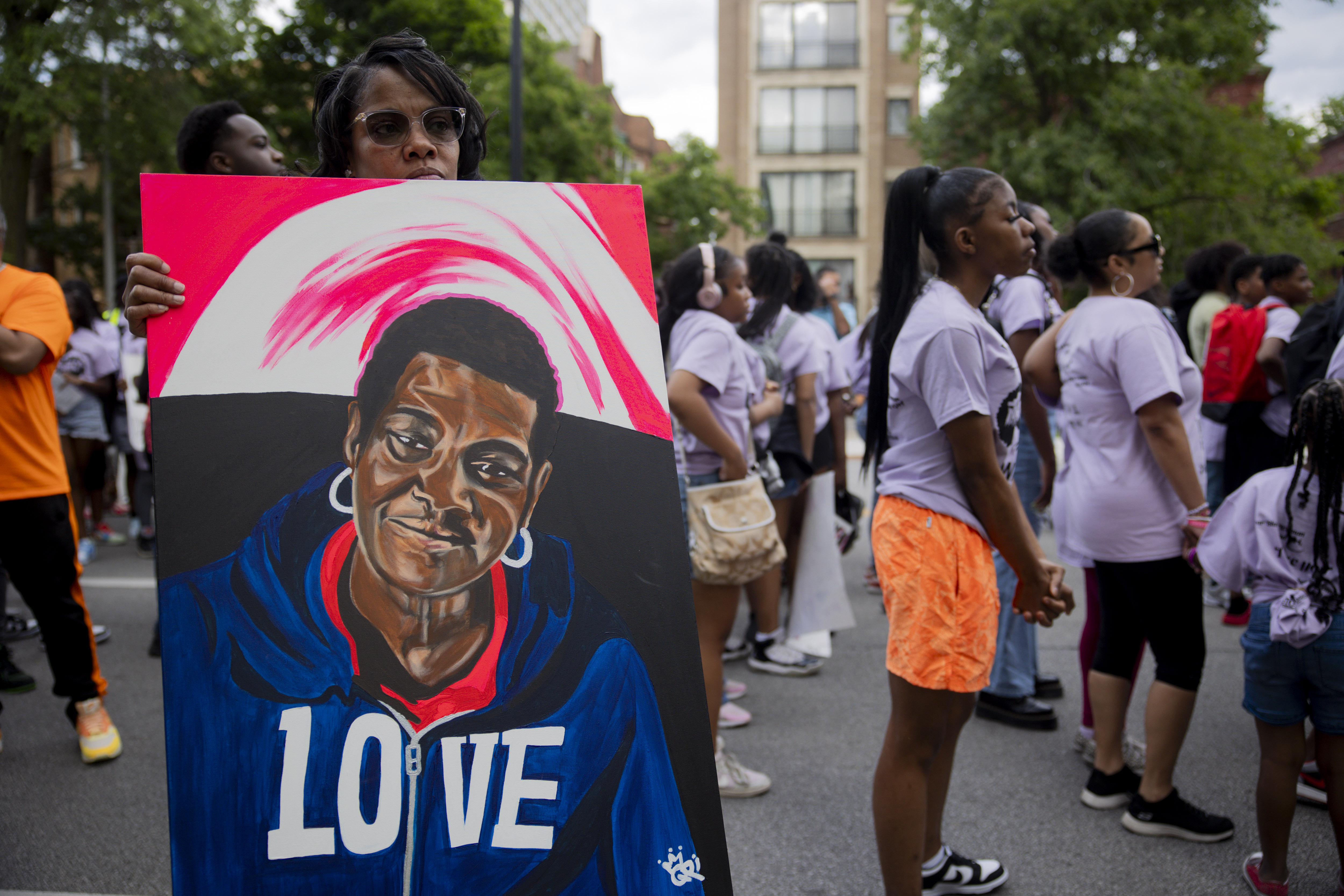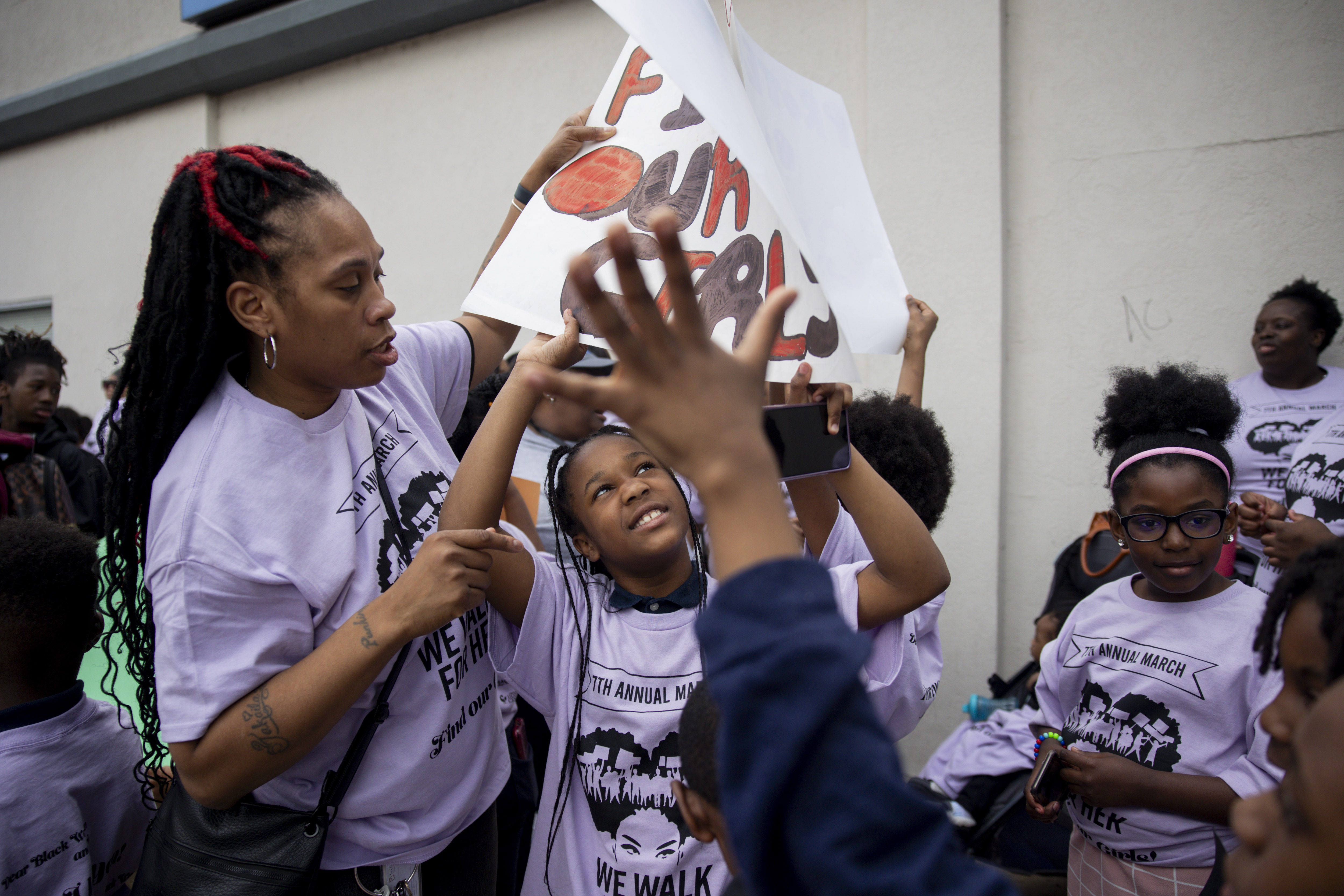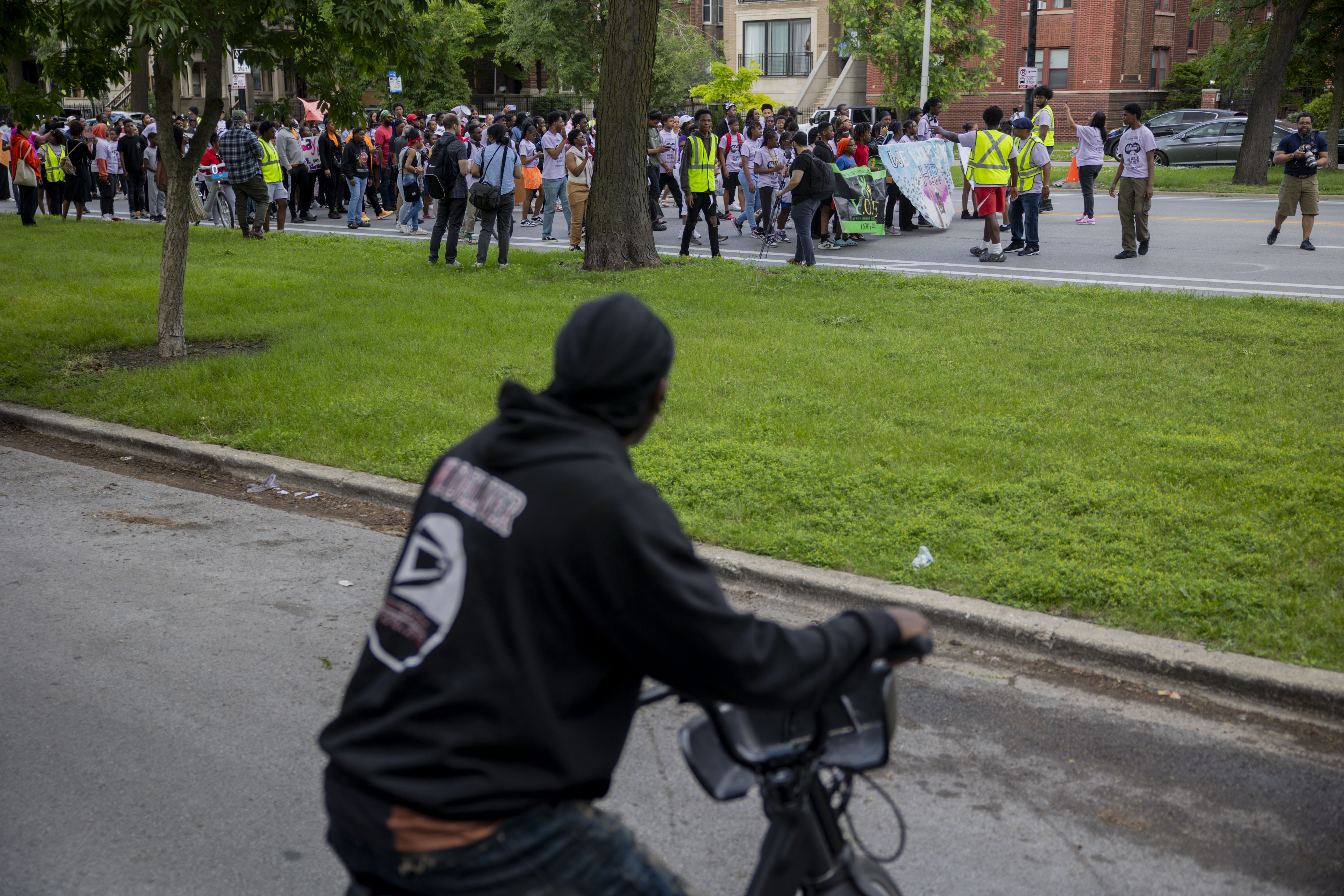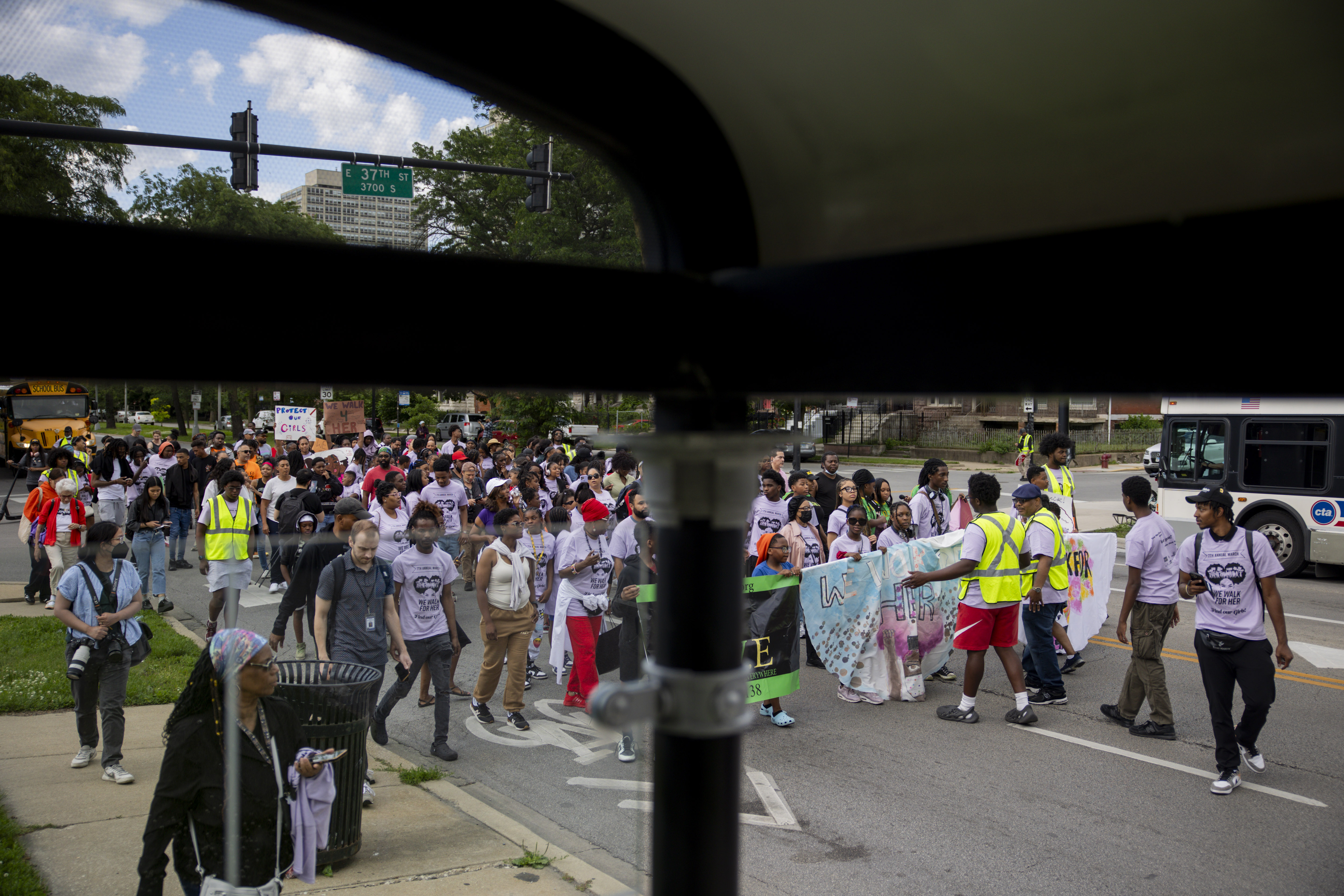[ad_1]
Daisy Hayes’ daughter Teresa Smith held up a colorful image of her late mother at the annual We Walk For Her march Thursday evening, calling out elected officials and the Chicago Police Department for not helping when her mom disappeared in 2018.
Hayes, 65, went missing in May 2018 from a Chicago Housing Authority senior citizen apartment where she lived. Hayes’ former boyfriend, Jimmy Jackson, then 72, was captured on surveillance video leaving the building with a suitcase and dragging it through the lobby to a dumpster outside. The next day, a garbage truck emptied the dumpster and transported the contents to a landfill in Indiana.
Yet a body was never recovered because officials told Hayes’ family that it would be too costly to retrieve and that a body wasn’t needed for prosecutors to pursue charges. Then in 2022, Jackson was acquitted in the death of Hayes after Cook County Judge Diana Kenwothy noted a lack of evidence.
“I had nowhere to go, no one to run to,” Smith said to the crowd gathered at 35th Street and Martin Luther King Drive. “I went to police stations, churches, everywhere. … No one would help me. I went to the Kenwood Oakland Community Organization when I was on fumes and they helped me when they started We Walk For Her.”
Smith said her community has a voice. “You have people willing to stand up with you,” she said. “This really needs to stop. Just because we live in a certain area code, ZIP code, it shouldn’t matter. We all are human. This hurts beyond anything I ever dealt with in my life.”
Youths and adults in lavender T-shirts with the words “We Walk For Her” took to the southbound lanes of King Drive to protest the continuing lack of action when it comes to missing Black and brown girls and women.
A young woman with the organization Mothers Opposed to Violence Everywhere said police need to look at Black females like they look at white females and must put as many resources into searches for Black victims as they do when a case involves a white victim, citing the example of the death of YouTube blogger Gabby Petito, which garnered nationwide attention.
Tanisha Williams of Kenwood Oakland Community Organization told media and onlookers that communities of color are outraged and heartbroken over the disregard for their trauma, and demanded more accountability from police and elected officials. She said Illinois needs to pass an Ebony Alert law like one in California. Williams said she would like civilian liaisons in each police district.
“Too many times families are pushed off or shoved around to different detectives or not getting any answers or feedback for their loved ones,” Williams said. “Too many times officers are controlling that narrative, and today that stops. Today, we are saying we want community liaisons in every police district to be able to interact with victims in the community in terms of real-time community alerts and reports on what’s happening. We want someone there to be genuine and empathize with families who are being impacted.”
Jitu Brown, national director for Journey for Justice Alliance, said he believes Mayor Brandon Johnson’s administration can accomplish some concrete things. Ald. Jeanette Taylor, 20th, said that for seven consecutive years, this march and the young girls who lead it, have been asking for a task force for missing women, like one in Minnesota. As Taylor remembered some of the missing Chicagoans, such as the Bradley sisters and Kierra Coles, she said it’s past time for such as task force.
“We pay taxes as well; we get the right to say how we’re protected,” Taylor said. “At the end of the day, the young ladies missing in my community are just as important as the young lady missing in their community.”
Journalist Trina Reynolds-Tyler of the Invisible Institute was talking to participants and handing out literature about her Pulitzer Prize winning series “Missing in Chicago.” She spoke to Edwina Davis, chairperson of the local school council of John Drake Elementary School, who was participating in the march for the fourth time.
“A lot of people want to tell us ‘don’t make it about race,’ but it’s absolutely about race because we can match how many Caucasian or girls of other nationalities have been found,” Davis said. “Our girls tend to disappear a bit more without being found, whether dead or alive. I want to see some consistency, some investigation. Show us that you’re trying. Out of all the years of doing these walks, I learned you can’t tell us to wait 24 hours. If my daughter is missing for 5 minutes, I’m coming to the police station. We need to be trained, learn our rights when we’re reporting missing people. If we found Amber with the alerts, let’s find Ebony.”
[ad_2]
Darcel Rockett , 2024-06-07 15:52:15
Source link

